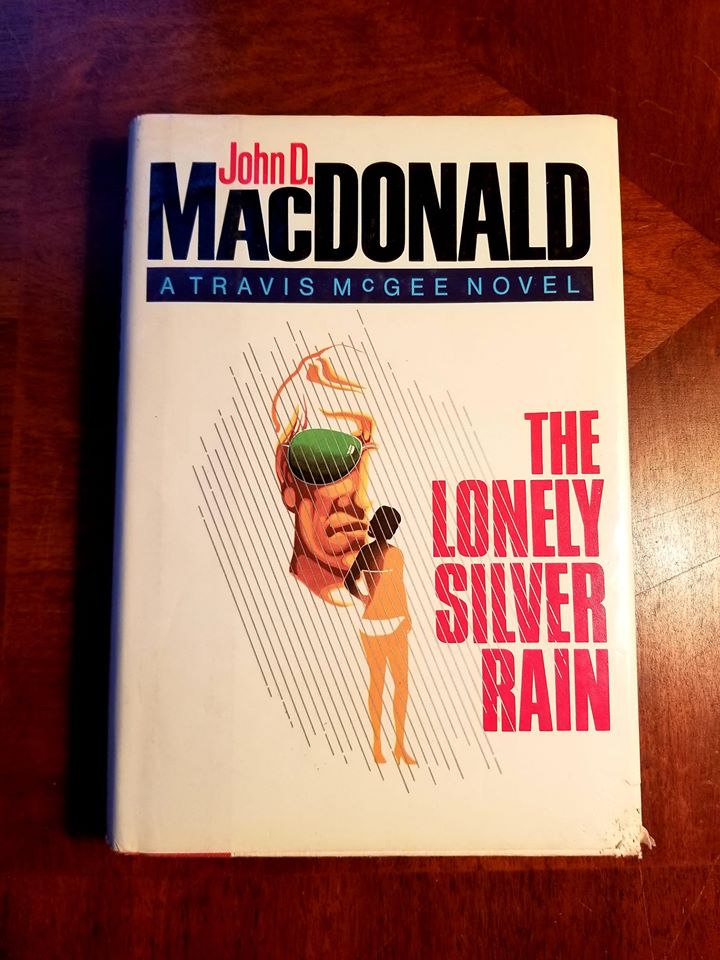Now I've come to the end of the series at last...
Throughout the first half of the series, from the first novel, 1962's THE DEEP BLUE GOOD-BY, to, I'd say, THE SCARLET RUSE in 1972, McGee is a boat-bum with intentionally few connections to people and world, believing it gives him the ultimate kind of freedom.
Slowly, over the next ten years and seven novels, his attitude changes to one of surprise, then dismay, then depression over how shallow and pointless his life is, even lamenting at one point that the "big door will slam" (a metaphor for death MacDonald used in many books) on him some day without McGee even having a window in it through which to peer at life.
Most of this novel is standard McGee (though better than the previous entry, FREE-FALL IN CRIMSON). Aside from the main plot, and a couple secondary plots, there's a very minor subplot in it that culminates in the only thing of significance in the novel: McGee learning that he has a bastard daughter by the one true love of his life, Puss Killian from 1968's PALE GRAY FOR THE GUILT, who left him for reasons of her own, to go back to her husband, not telling McGee she was dying of cancer or knowing she was pregnant and not getting a chance to tell him as she dies after an emergency c-section.
In the very last section of the novel, McGee's entire outlook from the previous 13 years' worth of novels has turned around and he's actually looking forward to living for the first time in a long, long time. At a gathering of all of his surviving friends, colleagues, and acquaintances from the previous novels, there's a celebration that feels very much like an end to the series, even though McGee does, in dialogue, proclaim he isn't through with his "salvage" business yet, because now he has a daughter to provide for.
I was worried that, after 21 novels, the series would be left hanging with JDM's unexpected death, but whether intentional or not, this does give it a fitting and satisfying end.
There's two more interesting things about this novel:
One is that there's direct, if casual, reference to characters from ONE MORE SUNDAY, JDM's second to last standalone novel (and the novel he published immediately before this one), making me wonder if JDM considered his works all in the same canon.
Secondly, this is the first McGee novel that finally nails down how time flows in McGee's world: it's real-time. Times change in the novels, but it's unclear until this one that they each take place in the year they were published (or thereabouts) and that McGee is definitely 23 years older in 1985 than he was in 1962 when the first novel was published, and his stated age was thirty.


 RSS Feed
RSS Feed